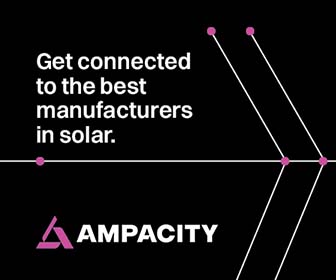Majority of States Studying or Changing Solar Net Metering Policies; Report Finds
The N.C. Clean Energy Technology Center announced the release of the quarterly installment of The 50 States of Solar: A Quarterly Look at America’s Fast-Evolving Distributed Solar Policy Conversation.
The report finds that regulators or legislators in 27 states considered or enacted changes to their solar net metering policies or were undergoing a solar valuation or net metering study during Q3.
This report provides a comprehensive overview of the rapidly-evolving state policy landscape for distributed solar. It includes links to track what is happening at the state legislative and regulatory level through the end of Q3 2015. The 50 States of Solar was prepared by the Center’s Energy Policy team, which also manages the Database of State Incentives for Renewables and Efficiency, and Meister Consultants Group of Boston, Massachusetts.
The report provides details on 91 instances in 42 states of proposed or decided regulatory and legislative state-level distributed solar policy changes during Q3 2015.
Key Details from The 50 States of Solar
Twenty-six utilities in 18 states had ongoing or decided rate cases in Q3 in which the utility proposed an increase fixed customer charge of at least 10%, a change to electric rates that can undermine the financial return of a solar PV system. In comparison, utilities in only two states are implementing a minimum bill for residential customers. The report finds that the average fixed charge increase requested in these 26 instances was 70%.
The report also finds 14 utilities in 10 states had pending or decided proposals for adding new charges and costs on solar net metering customers.
In addition, five states proposed or decided changes to community solar rules in Q3. Four states had ongoing efforts to clarify the legality of solar third-party ownership, which is the most popular financing tool in the nation among residential customers, but not permitted in all states. Utilities in four states proposed or implemented a utility-led rooftop PV program for residential customers.
“This has been another incredible year of growth in distributed solar thanks to rapidly falling costs and policies like net metering,” said Benjamin Inskeep, Energy Policy Analyst at the Center. “However, some states are tapping on the breaks for solar by undermining this key policy or adding new fees and charges on solar customers. This comes at a time when federal incentives for solar are set to expire at the end of next year, while fossil fuel subsidies remain in place. These types of policy changes could hold back the spread of clean, locally-produced energy.”
The N.C. Clean Energy Technology Center









.png?r=8680)


